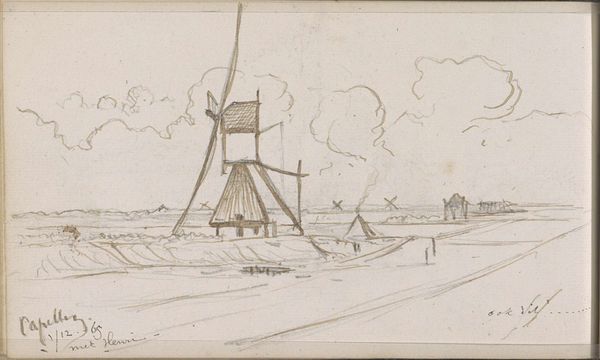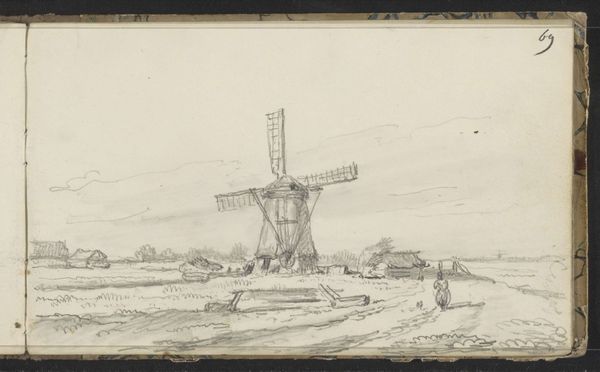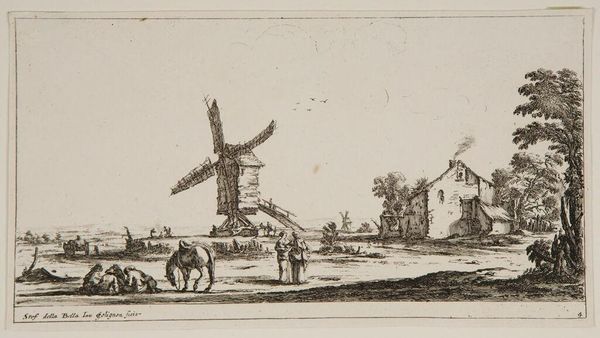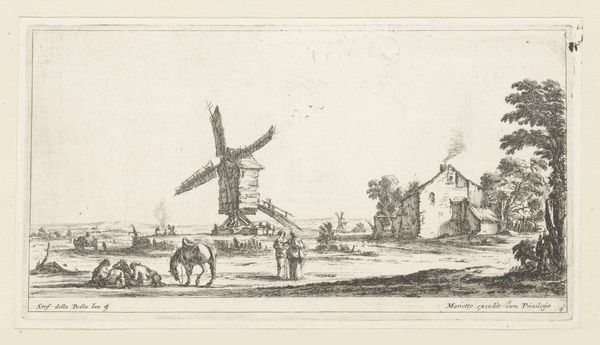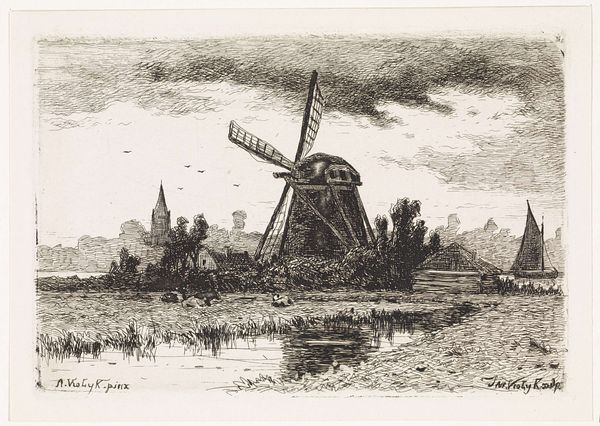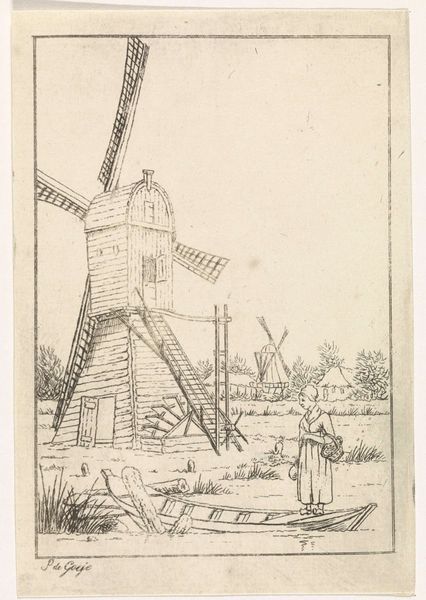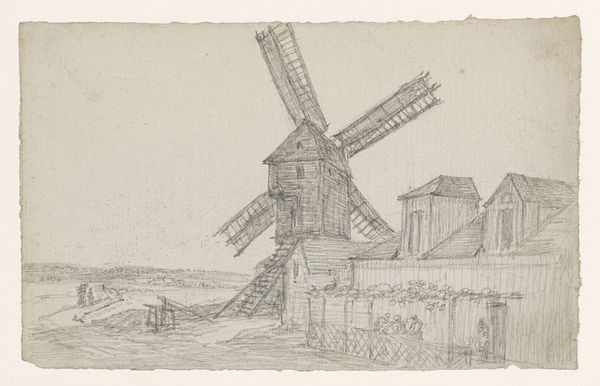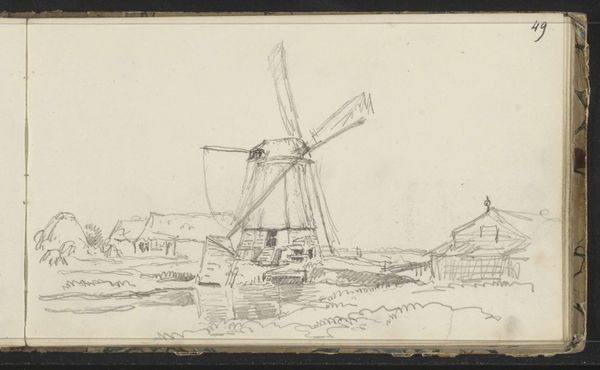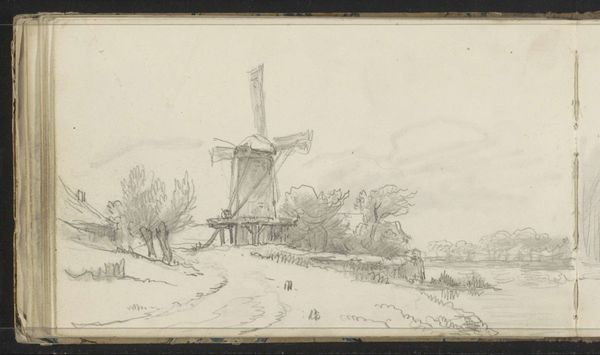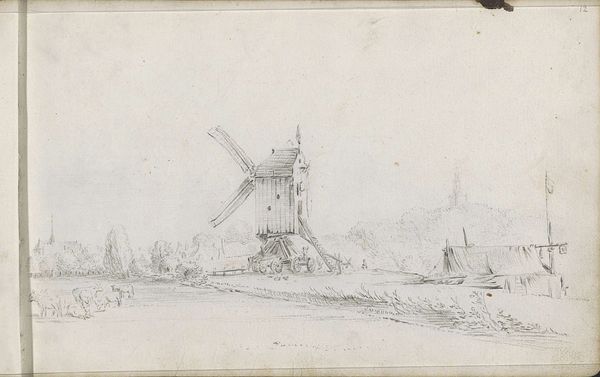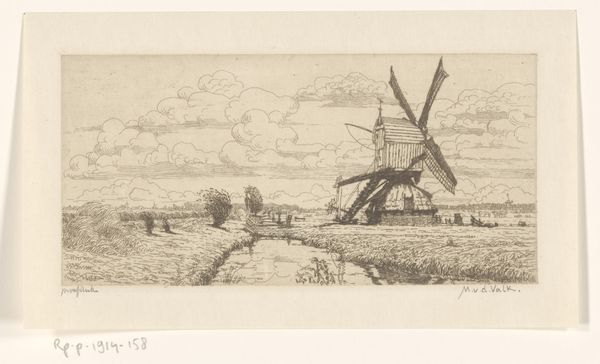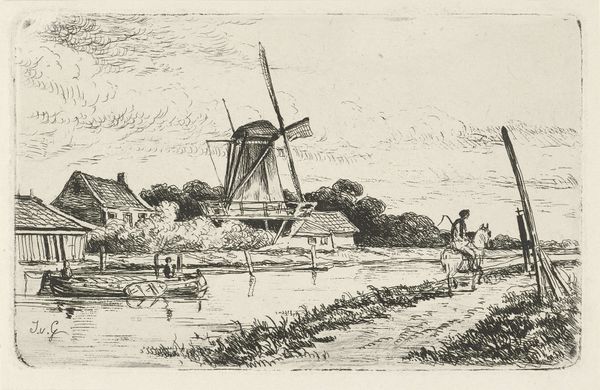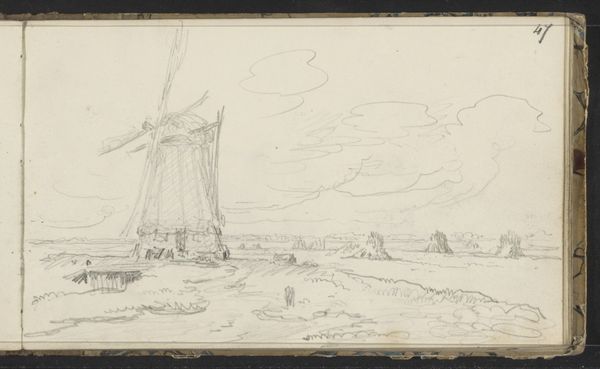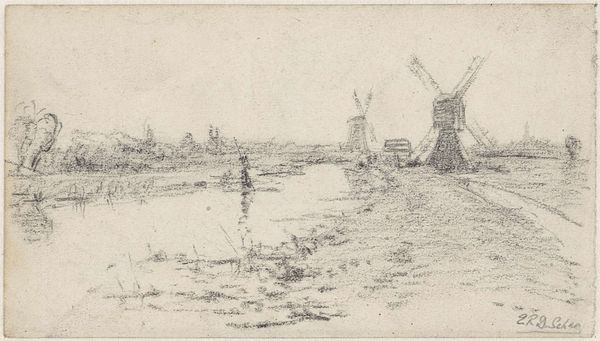
drawing, paper, ink, pencil
#
drawing
#
aged paper
#
quirky sketch
#
dutch-golden-age
#
pen sketch
#
sketch book
#
landscape
#
paper
#
personal sketchbook
#
ink
#
sketchwork
#
pen-ink sketch
#
pencil
#
line
#
sketchbook drawing
#
storyboard and sketchbook work
#
sketchbook art
#
realism
Dimensions: width 118 mm, height 59 mm
Copyright: Rijks Museum: Open Domain
Jacobus Ludovicus Cornet etched this landscape with a mill, and the dominant symbol here is the windmill. More than a mere structure, it represents the ingenuity of man harnessing the elemental force of the wind. This is an ancient symbol that goes back to medieval Europe. The windmill goes beyond its practical purpose and represents human ambition and the connection between man and nature. The wheel, a symbol of cyclical movement and time, is here combined with the life-giving force of the wind. Think of the windmills in Don Quixote. It is a symbol that has evolved, morphing from an image of progress to one of romanticised folly. They may evoke feelings of nostalgia for a simpler, pre-industrial past. This landscape may resonate with us on a deeper level, reminding us of our complex relationship with the natural world. The turning blades themselves seem to beckon us into a deeper contemplation of our past, our present, and the relentless, cyclical turning of time itself.
Comments
No comments
Be the first to comment and join the conversation on the ultimate creative platform.
